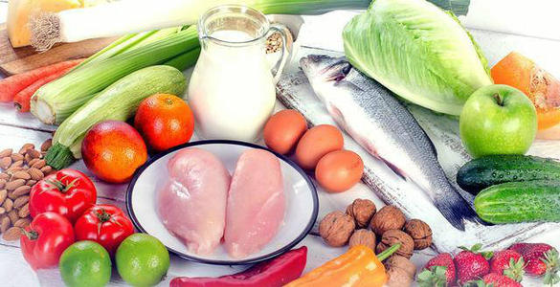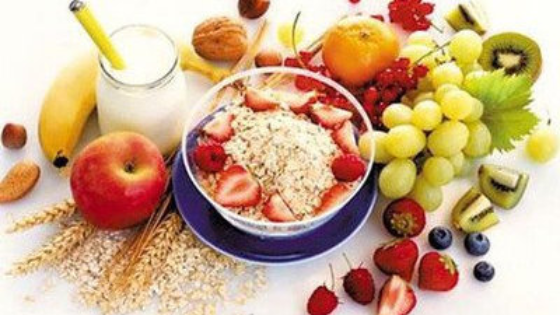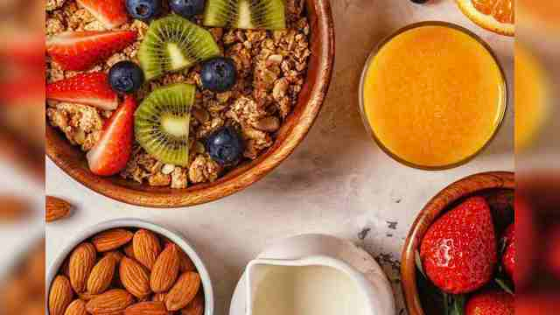By continuing to browser our site and use the services you agree to our use of cookies, Privacy Policy and Terms of Use. You can change your cookie settings through your browser.
A scientific and reasonable nutritional diet is helpful for the prevention and treatment of pneumonia caused by novel coronavirus infection. The Chinese Nutrition Association, the Chinese Medical Association, and the Parenteral and Enteral Nutrition Branch of the Chinese Medical Association released a guidance for a nutritional diet on the website of the National Health Commission, according to the "Chinese Dietary Guidelines" (2016-edition) and the National Health Commission The "Diagnosis and Treatment Scheme of Novel Coronavirus Pneumonia (Trial Version 4)".

For ordinary people
1. Diverse meals, with cereals as the staple food.
Daily meals should include cereals, vegetables and fruits, meats of livestock, poultry and fish, eggs, milk, soybeans and other foods.
(2) Eat more fruits, vegetables, milk and soybeans.
Choose fresh and dark fruits and vegetables. Eat a variety of milk and its products, especially yogurt. Eat soy products regularly and nuts appropriately.
(3) Eat fish, poultry, eggs and lean meat in moderation. Eat less fatty, smoked and cured meats. Resolutely put an end to eating wild animals.
(D) Eat with less salt and oil, control the intake of sugar and wine. Eat a light diet and avoid high-salt and fried foods. Drink water and light tea, 7-8 cups (1500-1700 ml) for adults per day; do not drink or drink less sugary drinks. Adults to drink alcohol do not drink more than 25 grams of alcohol a day, women do not exceed 15 grams.
(E) Have a balanced diet and a healthy weight. Do not overeat. Get up to stretch yourself every hour.
(6) Put an end to wasting. Promote the use of public chopsticks and spoons. Choose fresh, safe food and proper cooking methods.

For medical staff on the front line
(1) Ensuring sufficient energy intake every day. Recommended energy intake for men is 2400-2700 kcal / day, for women 2100-2300 kcal / day.
(2) Ensure daily intake of high-quality protein, such as eggs, milk, meats of livestock and poultry, fish and shrimp, and soybeans.
(3) Light diet and avoid eating greasy food. Seasoning with natural spices can be used to increase the appetite of medical staff.
(4) Eat more foods rich in B vitamins, vitamin C, minerals, and dietary fiber. Eat more vegetables such as rape, spinach, celery, purple cabbage, carrots and tomatoes, and more fruits such as oranges, apples and kiwi.
(5) Drink water as much as 1500-2000 ml per day as much as possible.
(6) If general dietary intake is insufficient out of busy work, enteral nutrition preparations, milk powder and nutrient supplements can be supplemented. And take 400-600 kcal of additional oral nutritional supplements per day.
(7) Practice individual dining system.
(8) Related departments in the hospital should rationally design meals and ensure nutritional guarantee for medical staff.

For general patients or recovering patients
1. Ensure enough energy. Ingest 250-400 grams of cereals, including rice, flour, grains, etc. every day;
2. Ensure sufficient protein, mainly the intake of high-quality protein foods (150-200 grams per day), such as lean meat, fish, shrimp, eggs, soybeans, etc. Try to eat one egg and 300 grams of milk per day;
3. Increase the intake of essential fatty acids through a variety of cooking vegetable oils, especially vegetable oils of monounsaturated fatty acids.
4. Eat more fresh vegetables and fruits. More than 500 grams of vegetable and 200-350 grams of fruits a day, especially dark fruits and vegetables.
5. Ensure adequate drinking plain water or light tea, with 1500-2000 ml per day. Kinds of soup before meals are also good choices.
6. Keep a light diet, eat less spicy and irritating food, and resolutely put an end to eating wild animals.
7. For those with poor appetite, the elderly, and patients with chronic diseases, nutrition-fortified foods, special medical formula foods or nutrient supplements can be used to add appropriate amounts of proteins and micronutrients.
8. Ensure adequate sleep and proper physical activity. Properly spend more time to bask in the sunshine.
For critical patients
1. Eat little and often. Take liquid foods that are good for swallowing and digesting 6-7 times a day, mainly the eggs, soy and its products, milk and its products, fruit juice, vegetable juice, rice noodles and other ingredients, pay attention to add sufficient quality protein.
2. With recovering from the disease, you can ingest semi-liquid food, which is easy to chew and digest, and gradually turn to the ordinary diet as the condition improves.
3. If the food fails to meet the nutritional requirements, enteral nutrition preparations can be correctly used under the guidance of a doctor or clinical nutritionist.
4. For critically ill patients who cannot eat orally normally, a nasogastric tube or a nasal jejunal tube can be used, and the nutrient solution can be pumped by gravity infusion or enteral nutrition infusion pump.
5. In the case of inadequate of food and enteral nutrition, for patients with severe gastrointestinal dysfunction, parenteral nutrition is required to maintain basic nutritional requirements.
6. The nutrition plan for these patients should be formulated according to their overall condition, the amount of access, liver and kidney function, and glucose and lipid metabolism.
FTP Expert Talks | Xiaodong Lee, Vice President of the Internet Society of China and Founder of the Fuxi Institution: Hainan is the "Nebula" of New Digital Youth
09:47, 12-September-2025Hainan Issues Offshore RMB Bonds in HK for 4th Consecutive Year
09:46, 12-September-20252025 Hainan FTP International Students Content Creation Project
02:28, 12-September-2025What Makes "Hainan Travel" So Appealing?
09:38, 11-September-2025100 Days to Go: What's Next for Hainan-Hong Kong Cooperation?
09:38, 11-September-2025Expert Talks Ep. 4: The Future of the FTP's Digital Economy
09:35, 11-September-2025By continuing to browser our site and use the services you agree to our use of cookies, Privacy Policy and Terms of Use. You can change your cookie settings through your browser.





